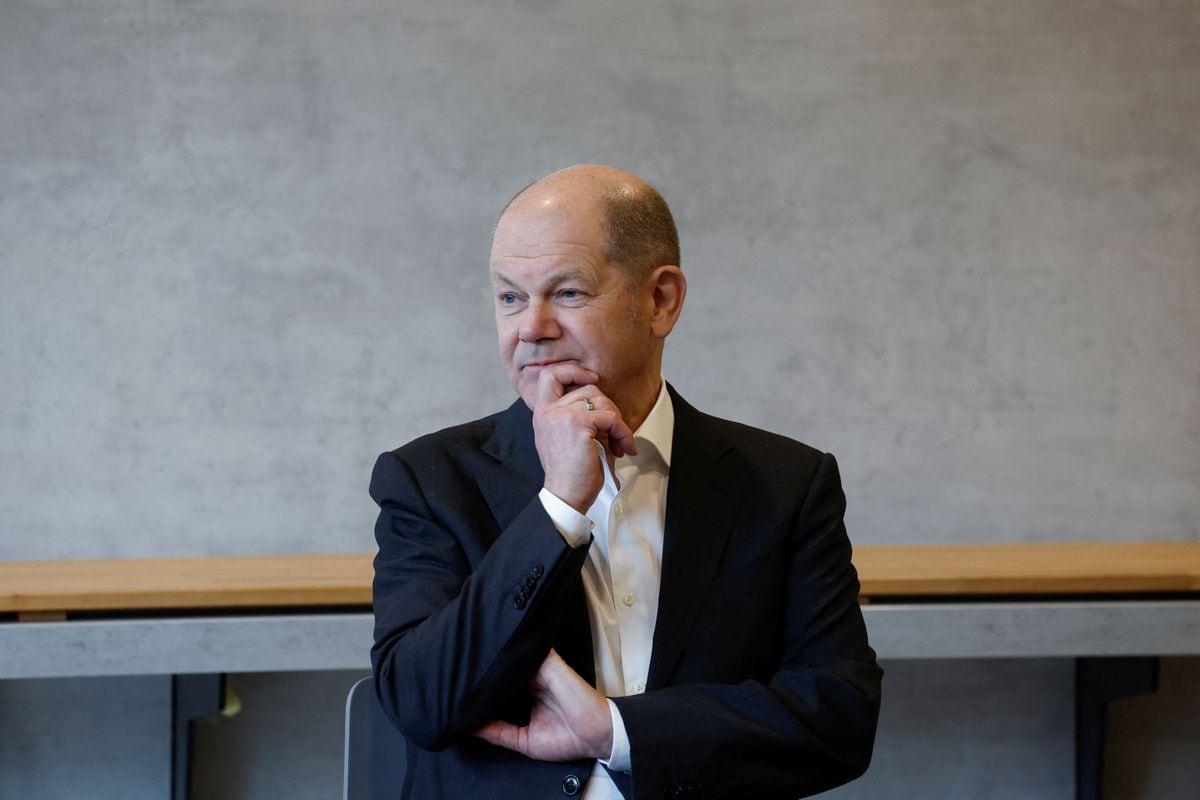The four main business organizations in Germany have long been at war against the German Chancellor, Olaf Scholz, whom they accuse of underestimating the country's economic problems and not taking their claims into account to impose a series of measures to improve the situation. of a faltering economy.
The Federation of German Industries (BDI), the BDA employers' association, the Confederation of German Craftsmen (ZDH) and the Chamber of Industry and Commerce (DIHK) met this week behind closed doors with the social democrat Scholz in a new attempt to convey their concerns to the social democratic leader. Without words of thanks or diplomatic formulas, the businessmen limited themselves to writing in a brief statement about the “important structural challenges” facing the German economy and that they are “available at all times for dialogue” about the specific form of implement the necessary measures to counteract Germany's persistent economic weakness.
The discontent was evident in the statements of some participants in the meeting collected by the German economic newspaper
Handelsblatt
, who stated that during the 90 minutes that the meeting lasted “they talked to each other, but did not get closer.” The meeting did not alleviate the tension that has existed for months between the business community and the German Executive. “Everything continues to slip away from the chancellor,” said one of the business representatives. “It continues to fail to recognize Germany's economic imbalance,” he noted. The unanimous opinion of those present was that he was not receptive to the company representatives and there were no concrete commitments. “Scholz spoke almost exclusively about what he had already done for the economy,” indicated the businessmen, who later also met with the leader of the opposition party, the Christian Democratic Union (CDU), Friedrich Merz.
In recent days it had already been leaked to what extent businessmen felt let down by the chancellor. The fact that the disagreements after the meeting have been made public so clearly illustrates their distancing, although the German Government insists that the chancellor attaches "great importance to dialogue with the business community and associations."
Businessmen want the chancellor to act decisively to turn around a situation that they describe as unsustainable. Germany is at the bottom of all growth rankings, with a forecast for the current year of 0.1%. The German economy was the only one of the G7 countries that contracted in 2023. All the economic data speak against the European country, foreign countries show their concern about whether Germany is once again “the sick man of Europe” and the minister of German Economy, Robert Habeck, no longer hesitates to describe the economic situation as “dramatic”.
“If Scholz seriously believes that everything will change for the better only thanks to the power of his words, the German economy has an even bigger problem. In that case, the head of government himself is a disadvantage for the situation, because he does not want to admit what should not be. And he does not act accordingly,” writes the
Handelsblatt
.
In an interview published last week in the
Süddeutsche Zeitung
, BDI president Siegfried Russwurm lamented “two lost years” for the economy. The leader of the country's most powerful industry association described the chancellor as a man who fails to get anything done because he is always busy praising himself and accused him of "clearly underestimating the seriousness of the situation." Meanwhile, Rainer Dulger, president of the BDA employers' association, declared in January that companies had “lost confidence in the federal government” and that their patience was “running out.”
Their discontent led them to send a letter to Scholz at the end of January to inform him that they were observing “with great concern the political, social and economic evolution” of Germany and demanding reforms that “promote an economic awakening” in the country. The letter was accompanied by an accompanying document in which the associations outlined specific measures in ten policy areas, from reducing bureaucracy and reforming the tax and welfare state to obtaining qualified labor and reducing prices. of electricity. In the opinion of businessmen, “to a large extent, Germany's problems as a business location are homegrown.” “The necessary structural reforms have not materialized in recent years,” they indicated. This development “has affected the core of Germany's economic foundations. A change of course is necessary,” they requested.
Against this backdrop, economic institutes point out that Berlin will not really act until there is a real wake-up call, such as, for example, one of the German car manufacturers getting into real difficulties. “Only then would they irrevocably realize that we cannot simply continue with the old economic model,” explains Moritz Schularick, president of the Kiel Institute for the World Economy, in statements to the trade magazine
WirtschaftsWoche
. In the opinion of the economic advisor, it is “unlikely that we will see a major reform in the year and a half until the elections, given the many taboos that have been established by all the coalition partners.”
_

